A dependable standby generator can be the difference when it comes to guaranteeing an unbroken power supply, especially during critical times. A 30kw diesel generator is a bright and reliable solution that would be chosen for any case whether it is protecting your business operation, keeping the essential home systems alive, or even supporting remote projects. So, this guide is aimed at clarifying the whole concept of 30kw diesel generators—how they function, the pros of using them, and the very reasons they may be the best for your power quality. You will be the one with the necessary knowledge to make the proper selection by the end of the article, thus making you fully equipped for any power cut or energy increase occurrence.
Understanding the 30kw Diesel Generator
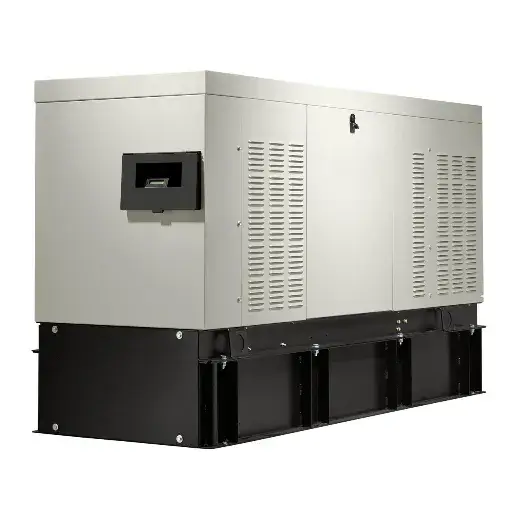
A 30kW diesel generator is a power-producing device that generates 30kW of electrical output using diesel fuel as the energy input. Power generation of this type is made to function reliably and it consistently produces power for a variety of applications such as residential backup, commercial use, and industrial support. They work by changing the energy of burning into mechanical energy, which is then converted into electric energy. Diesel generators are recognized for their long-lasting nature and high efficiency, allowing them to operate for extended periods and meet high power needs, thus ensuring guaranteed performance during power cuts or in areas without grid connection.
What is a 30kw Diesel Generator?
A diesel generator with a rating of 30 kilowatts is a powerful and dependable machine that produces electrical energy. Its output suits quite well the needs of medium-sized residential, commercial, or industrial applications, such as a small business operation, a construction site, or a standby power solution for homes or office buildings. The operation of the generator mainly involves using a diesel engine to drive an alternator, transforming mechanical energy into electrical energy with high efficiency. Generally, the manufacturers focus on the characteristics of strength, fuel economy, and performance in the case of these generators and they are able to work for several hours while operating with high loads. Automatic voltage regulation, noise reduction, and digital monitoring systems are some of the features that often come with modern 30kw diesel generators to provide smooth and user-friendly operation. Their small size and adaptability are also advantages that allow them to be used either way, mobile or fix, according to the user’s requirements.
Applications of a 30kw Diesel Generator
- Construction Sites:
They are perfect for giving power to heavy-duty machines, tools, and other necessary equipment in isolated or temporary construction sites. - Industrial Facilities:
They can back up the entire manufacturing service, including assembly lines and even critical systems during the blackout. - Healthcare Facilities:
They are the primary source of emergency power for the entire hospitals, clinics, and laboratories that need to keep their life-saving machines and equipment running. - Agricultural Operations:
They enable the power of irrigation, drying, and general agricultural activities in places that are far away or not connected to the grid. - Event Management:
Guarantees that there is power for the lighting, sound systems, and other equipment during outdoor events, concerts, and festivals.
Key Features of 30kw Diesel Generators
Fuel Efficiency
This product is designed to use less diesel while maintaining a steady power output, making it cost-effective to operate.
Durability
It is manufactured from strong materials and parts that can withstand the harshest conditions and operate for extended periods.
Low Maintenance
This machine requires little maintenance due to its advanced engineering and high-quality parts, which reduces downtime.
Noise Reduction
The machines are fitted with soundproofing technology that gives them a quieter operation and makes them suitable for different environments.
Automatic Control Systems
The equipment has a feature of automatic start/stop operation and monitoring systems for the smooth and easy use.
Specifications of a 30kw Diesel Generator
| Specification | Details |
|---|---|
| Rated Power Output | 30 kW |
| Fuel Type | Diesel |
| Engine Capacity | 4-cylinder engine with turbocharging |
| Cooling System | Liquid-cooled |
| Fuel Tank Capacity | 100 liters (roughly full load runtime of 8-10 hours) |
| Voltage Output | 230V/400V (single-phase/three-phase) |
| Frequency | 50 Hz or 60 Hz (based on area) |
| Noise Level | ≤75 dB at 7 meters (silent enclosure used) |
| Starting Mechanism | Electric start with automatic control integrated |
| Dimensions | Approx. 2000mm x 900mm x 1200mm |
| Weight | Approx. 600–800 kg (depends on model) |
Technical Specifications and Performance
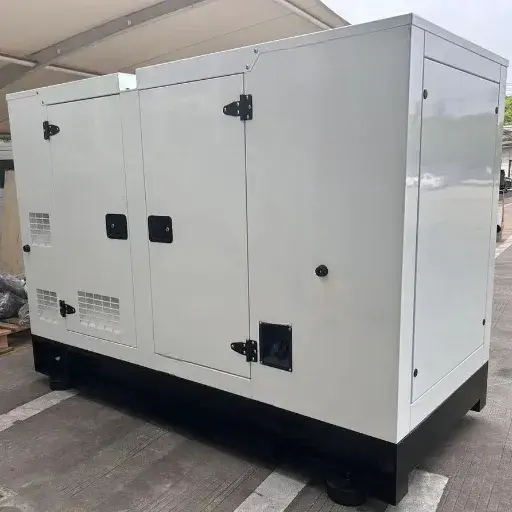
The 30 kW diesel generator is a robust and power-efficient machine designed to cover a wide range of applications, such as industrial, commercial and backup power. Below are its main technical characteristics and performance details:
- ✓
Rated Power Output: 30 kW (ideal for mid-scale operations and machinery) - ✓
Engine Type: 4-stroke liquid-cooled diesel engine - ✓
Fuel Efficiency: Around 6–8 liters per hour when fully loaded, varying with the model - ✓
Control System: Comes with a sophisticated auto control panel, which includes overload, voltage, and frequency protection features - ✓
Voltage Stability: Keeps an output of 230V/400V with a ±1% tolerance for smooth operation - ✓
Operational Duty: Made for continuous or standby power generation with minimal maintenance - ✓
Sound Attenuation: Offered with soundproof enclosures that bring the noise level down to ≤75 dB at 7 meters
Performance Metrics:
The main criterion for measuring a 30kW diesel generator’s performance is its ability to output smoothly under different loading conditions. The latest generators are fitted with digital monitoring tools that continuously show the data on fuel usage, voltage, runtime and the condition of the engine. This results in better operational efficiency and longer life for the generator. The strong design of the generator enables it to withstand severe weather, allowing it to be safely installed outside.
Moreover, the development of diesel engines has made it possible to produce emissions that meet the Tier 4 standards in many places, thus providing a less harmful alternative to other energy sources. For the mid-sized businesses or the construction sites, the 30kW diesel generator is the one that guarantees a constant power supply which is crucial for the smooth running of operations.
Emissions and Tier 4 Compliance
Tier 4 compliance consists of the most burdensome emission regulations ever promulgated by the Environmental Protection Agency (EPA) concerning diesel engines employed in off-highway applications. The diesel generator, with a 30kW capacity and compliance with Tier 4 emission regulations, is not among the pollutants most responsible for degrading air quality because it emits extremely low levels of particulate matter (PM) and nitrogen oxides (NOx). The involvement of diesel exhaust treatment technologies like DPFs (diesel particulate filters) and SCR (selective catalytic reduction) has made such drastic reductions possible.
The 30kW diesel generator, which meets the Tier 4 emissions criteria, offers high performance and environmental sustainability. This makes it an ideal choice for operations and industries aiming to minimize environmental impact while ensuring a reliable power supply. Moreover, these regulations indirectly lead to higher operational efficiencies because newer engines are built to minimize fossil fuel consumption and reduce emissions to the lowest possible levels. Thus, the dual advantage makes the installation of Tier 4 compliant generators a wise move for the long-term adoption of green-friendly practices.
Standard Equipment vs. Optional Equipment
Standard equipment of a 30kW diesel generator typically includes components like the engine, alternator, and control panel. In contrast, optional equipment may consist of extras such as weatherproof enclosures, remote monitoring kits, and upgraded exhaust systems.
| Key Point | Standard | Optional |
|---|---|---|
| Engine | Included | Upgraded models |
| Alternator | Included | Higher capacity |
| Control Panel | Included | Advanced features |
| Enclosure | Basic | Weatherproof |
| Monitoring | Basic | Remote system |
| Exhaust | Standard | Enhanced version |
| Fuel Tank | Integrated | Larger capacity |
| Wheels | Stationary | Mobile kit |
Types of 30kw Diesel Generators
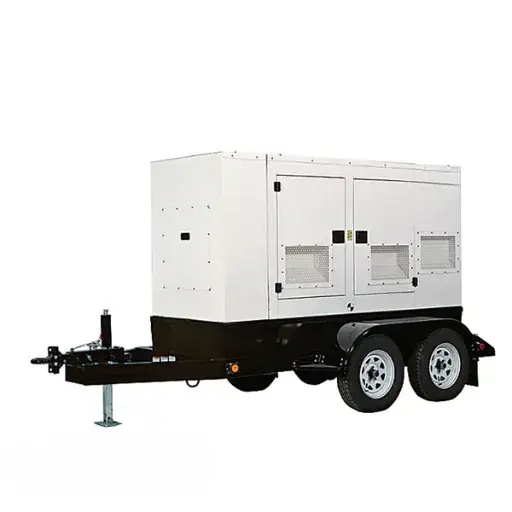
Different needs and applications are the aspects on which different 30kw diesel generators are built. The basic kinds of these generators are mentioned below:
Open Frame Generators
Areas where noise is not a concern usually take these models. They are an excellent option for the environment that already has weather protection and also a cost-effective one.
Enclosed Generators
These units are placed in weather-tight enclosures, providing protection from the weather and minimizing noise. They can be used in outdoor or city applications.
Portable Generators
These units come with wheels or a mobility kit and are thus intended for easy movement. They are usually found in temporary settings or construction sites.
Standby Generators
Power supply through generators that switch on automatically during power failure is a common practice for industrial or commercial buildings that require constant power. Standby generators are thus designed for such operations.
Prime Power Generators
No grid supply areas can be served by these units, which are capable of providing power nonstop. They are intended for significant and long-term operations.
Nevertheless, each variant can be made suitable for customer needs and at the same time, be accompanied by optional features such as remote monitoring, better exhaust systems, or larger fuel tanks.
Standby Generators
The electricity supply during power cuts is guaranteed by standby generators, which serve as backup power systems. These devices automatically recognize the interruption in power and begin operation in a matter of seconds, supplying power to the most crucial systems and appliances. Generators of this type can be found in residences, hospitals, data centers, and various sectors where an uninterrupted power supply is vital. Standby generators usually depend on fuel sources like diesel, natural gas, or propane, ensuring reliable operation during emergencies. They are always there to provide consistent performance and peace of mind to their users when maintenance is done right.
Mobile Generators
Mobile generators are powering solutions that can be deployed and used to provide electricity anywhere. These types of generators are most often found at building sites, in parks and playgrounds during festivals and recreation activities like camping, where the need for power is short-lived. In contrast with standby generators, mobile generators are small and often fitted with wheels or handles to be easily moved around. Either gasoline or diesel usually powers them, and they are available in different dimensions and capacities to cater to the various needs of customers. Mobile generators prove to be a versatile source for making electricity available in hard-to-reach places or during emergencies.
Commercial vs. Industrial Solutions
Commercial solutions prioritize affordability and portability, while industrial solutions emphasize durability, high power output, and long-term use.
| Key Point | Commercial | Industrial |
|---|---|---|
| Power Output | ≤30kW | ≥30kW |
| Durability | Moderate | High |
| Portability | High | Low |
| Fuel Efficiency | Standard | Optimized |
| Noise Level | Lower | Higher |
| Cost | Lower | Higher |
| Usage | Short-term | Long-term |
| Maintenance | Easy | Intensive |
| Applications | Light duty | Heavy duty |
| Lifespan | Shorter | Longer |
Selecting the Right 30kw Diesel Generator
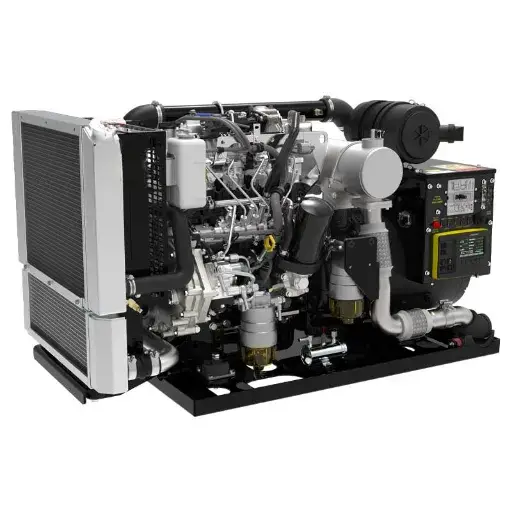
Before you go for the 30kW diesel generator, make sure to think about what you need specifically. If you use it for non-residential purposes, consider the aspects mentioned above regarding portability, ease of maintenance, and cost-effectiveness for short-term, lighter-duty use. On the contrary, if your needs are industrial, then choose based on durability, reduced fuel consumption, and longevity to support heavy-duty, long-term applications. Considering the power output, noise level, and overall cost will guide you in selecting the best one for your application.
Factors to Consider When Choosing a Generator
- Power Output – The first step is to determine the power output you need. For this, consider the total wattage of all the devices and appliances that the generator is going to support. Plus, be sure to choose a generator with enough power for both the initial and continuous wattage.
- Fuel Type and Efficiency – You can also check the generator’s fuel type (gasoline, diesel, propane, or dual-fuel) and its efficiency. A generator that consumes less fuel can reduce costs in the long run and have less impact on the environment.
- Noise Level – The generator’s noise level should be one of the factors you consider, especially if you intend to use it where noise is an issue such as residential areas, campsites, or other locations. Make sure to compare generators with the lowest decibel ratings or soundproofing features.
- Portability and Size – Consider the weight, size, and portability of the generator when reviewing. Small and lightweight generators are intended for easy transport and temporary setups, while large and heavy stationary generators are for long-lasting and high-capacity power supply.
- Maintenance and Durability – Choose a generator that is not only easy to maintain but also made of high-quality materials. High-quality construction ensures that the generator will last through rough conditions and frequent use.
How to Evaluate Generator Dealers
- Reputation and Reviews
A customer’s point of view, a review, and a testimonial can help determine the dealer’s reputation. A dealer that receives a lot of positive feedback is likely to offer great service and high-quality products. - Product Selection
It is advisable to choose a dealer with a wide range of generator brands and models to cater to different tastes and power needs. - Certifications and Licensing
Verify that the dealer holds the necessary certifications and is legally authorized to sell and service the generator brands they represent. This will guarantee the originality of the products and adherence to the standards set by the industry. - Customer Support
It would be best to choose a dealer whose customer service is always available and quick so that they can assist with questions, troubleshooting, and maintenance support. - Warranty and Service Options
Consider dealers who offer extended warranties and service plans as part of the purchase to ensure your generator performs well for a long time.
Cost Considerations and Budgeting
Cost and overall value are two key factors that must be weighed carefully when buying a generator. First of all, you should know your power needs to avoid paying extra for a larger unit than necessary. Basic generators for home backup use can cost from $500 to $1,500 at the lower end of the scale, while the top models with extra features and greater wattage can exceed $5,000. If hiring an expert for installation is essential, the installation cost should also be considered, as it may add $500 to $2,000 to your total budget.
Also, include the aforementioned expenses in the form of fuel consumption and regular maintenance. As an example, portable generators usually work on gasoline, which has uncertain prices, while standby generators can use either natural gas or propane. For: Fuel-efficient generators, in the long run, can save the user money. And at the same time, never forget to include warranty and repair costs; this ensures your model is protected against possible problems without an unpredictable financial burden.
Maintenance and Care for Your 30kw Diesel Generator
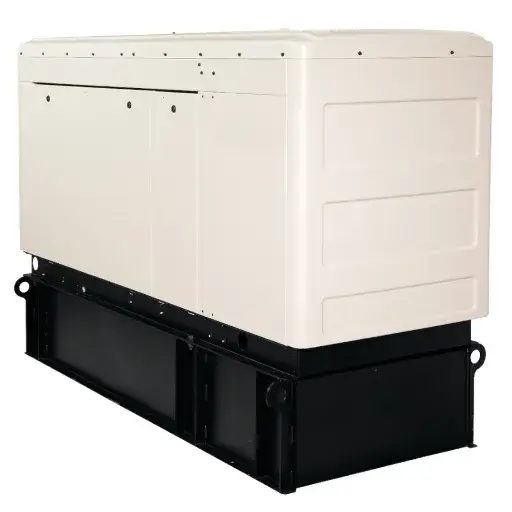
Maintenance and care are highlighted as the primary factors for the reliable operation and long lifespan of a 30kw diesel generator. To begin with, carry out frequent inspection of air, fuel, and oil filters, and replace them according to the manufacturer’s instructions. Moreover, check oil and coolant levels often and fill them up if necessary. Next, carry out timely servicing, including oil changes, to limit the excessive wear of engine components. Then, keep the generator neat and free from any dirt or obstructions to avoid overheating or blocking of parts. At the same time, it is advisable to run the generator at intervals to ensure it is still functioning correctly. Do not hesitate to get a professional to examine any unusual noise or performance issues, as it is better to be safe than sorry.
Routine Maintenance Practices
To ensure the efficient operation of my generator, I am steadfast in my adherence to maintenance practices. The air filter is regularly inspected and cleaned, and the spark plug is checked for wear and replaced when necessary. The engine is also kept in reasonable condition by using only the recommended fuel and storing it properly to prevent contamination. By following a regular maintenance routine, I can extend the lifespan of my generator and keep it ready for action at any time.
Common Issues and Troubleshooting
1. Generator Won’t Start
- First of all, check the fuel gauge to confirm there is sufficient gas for the generator to start.
- Next, look for any wear or damage on the spark plug, and if you find any, then replace it.
- Then check the air filter and make sure it is clean and not obstructed.
2. Low Power Output
- Make sure that the generator is not overloaded with too many devices.
- Check if there are any loose connections or damaged ones.
3. Engine Stalls or Shuts Down
- Check if the oil level is within the specified range.
- Look for the fuel to be contaminated or old and needs to be replaced.
4. Excessive Noise or Vibration
- Look for loose bolts or parts causing vibration and noise.
- Examine the muffler for obstruction or damage.
5. Battery Not Charging (For Electric-Start Models)
- First, check the battery voltage, and if it’s not sufficient, then replace it.
- Next, check the condition of the charging cables and connections for any signs of corrosion or breakage.
Maximizing the Lifespan of Your Generator Set
To get the most out of your generator set for the longest possible time, it is recommended to consider the following main practices:
Perform Regular Maintenance
Keep to the maintenance schedule that the manufacturer suggests. Regularly check parts for wear, oil levels, and the condition of the filters to keep performance at its best.
Use Quality Fuel and Lubricants
To eliminate the risk of wear or damage, the highest quality fuel and lubricants recommended for the generator should always be used.
Ensure Proper Storage
The generator should be stored in an area that is clean, dry, and well-ventilated. Protecting it from extreme temperatures and moisture will prevent rusting or degradation of parts.
Monitor Load Capacity
The generator should not be overloaded. Operating within the recommended load range all the time not only protects the components but also increases efficiency.
Run the Generator Periodically
If the generator is not in regular use, it should be periodically started and run to prevent mechanical problems and keep the lubrication of the parts.
By adhering to these practices, the operational life and performance of your generator set could be survived a lot and even more than that.
Reference Sources
-
Comprehensive Guide to 30 kW Home Generators – This guide provides insights into the applications and benefits of 30kW generators for larger homes and small businesses.
-
Installing a 30kW Generator: What You Need to Know – A detailed guide covering the planning and setup process for installing a 30kW generator.
-
Mitsubishi 30 kW Diesel Generator | PDG Power – Information on a specific 30kW diesel generator model, highlighting its durability, reliability, and compliance with emission standards.
-
30 kW Industrial Diesel Generator Datasheet – A technical datasheet providing specifications and operational details for a 30kW industrial diesel generator.
-
Feasibility Study of Energy Storage Technologies for Remote Areas – A study that includes fuel consumption and efficiency characteristics of 30kW generators, useful for assessing feasibility.
Frequently Asked Questions (FAQs)
What is a 30kw diesel generator and what are its specifications?
A 30kw diesel generator is a compelling device that can produce 30 kW of electric power, which is generally intended for commercial and industrial use. These generators are also suitable for standby and mobile applications, providing power during power cuts or in areas where electricity is unavailable. The standard specifications contain 3-phase or single-phase output, and the Cummins C30D6 model is renowned for its outstanding performance.
What are the benefits of using a 30kw generator?
The benefits of using a 30kw generator include excellent fuel economy, rugged durability, and long-lasting service. These generators are designed to deliver the required wattage with minimal fuel consumption. Additionally, they can start motors, making them suitable for powering various equipment, thus ensuring the smooth operation of your processes.
Can a 30kw diesel generator be customized to your preferences?
A 30kw diesel generator can be tailored with optional equipment and accessories to fulfill particular requirements. Options might include noise enclosures to make the operation quieter, extra fuel tanks for extended runtime, and improved control panels for precise monitoring. Customization allows the generator to be seamlessly integrated into the user’s existing systems.
What is the sound level of a 30kw diesel generator?
Many 30kw diesel generators are designed to operate with minimal noise, making them among the most silent machines for industrial applications. While models with noise-reduction technologies and those in soundproof housing can significantly reduce noise, they may still be installed in areas where noise is a significant factor.
What are the Tier 4 emissions standards for diesel generators?
The Tier 4 emissions standards are laws introduced by the Environmental Protection Agency (EPA) that restrict the amount of pollutants that diesel engines can emit. When a 30kw diesel generator is said to be Tier 4 compliant, it means it has been designed to emit less smoke than those not adhering to these laws and thus, indirectly aiding the planet in terms of pollution control. Such compliance becomes even more critical in the case of generators intended for rental or use in cities.
What is the usual RPM of a 30kw diesel generator?
The RPM (revolutions per minute) of a diesel generator producing 30kw of power is typically 1800 rpm, resulting in a steady frequency and sound power output. This speed is characteristic of generators used in industry and is optimal for ensuring efficiency and dependability across various applications.
Conclusion
A 30kw diesel generator represents a powerful, reliable, and versatile power solution for a wide range of applications. Whether you’re looking to provide backup power for your business, support construction operations, or ensure continuous power in remote locations, understanding the specifications, types, and maintenance requirements will help you make an informed decision. By carefully considering your power needs, evaluating dealers, budgeting appropriately, and following proper maintenance practices, you can maximize the lifespan and performance of your generator investment. With the right 30kw diesel generator, you’ll have the peace of mind that comes from knowing your power needs are fully protected.
